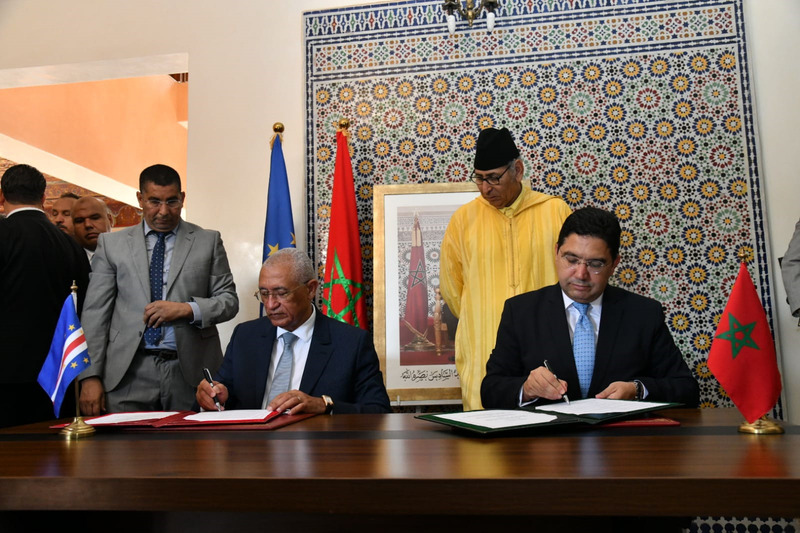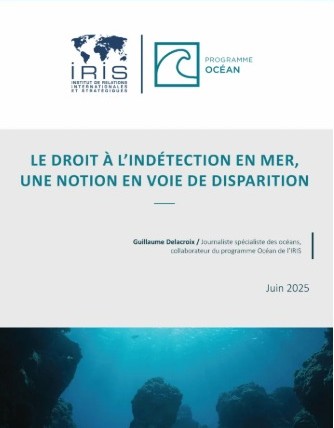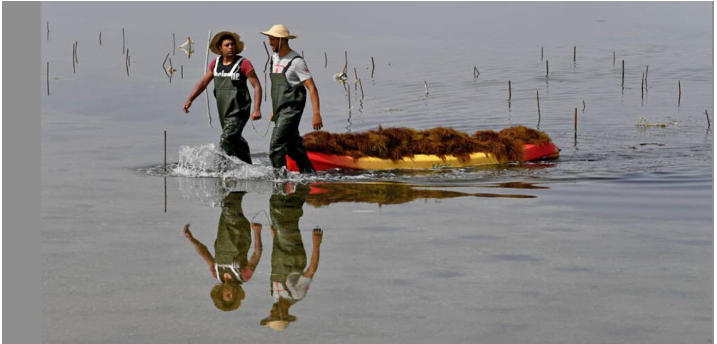In a world where geopolitical complexity demands bold, strategic choices, Africa stands proud, indomitable. And at the heart of this grand stage with countless stakes, two voices rise—echoing shared ambitions and visions: Morocco and Cape Verde.
These two nations—whose paths might appear distant—find their destinies, woven by history and the dream of a shared future, converging on a joint project based on regional integration, South–South cooperation, and pragmatic diplomacy. At the intersection of Atlantic winds, Rabat and Praia are crafting a rare diplomatic symphony: a chosen, assumed alliance forged in the crucible of contemporary challenges.
From King Mohammed VI’s Atlantic Initiative, which draws a future trajectory across maritime flows, to blue‑economy projects, the Nigeria–Morocco gas pipeline, and broader South–South cooperation, a meaningful pact is unfolding. A bridge between continents, a wake carved into ocean waves, a silent yet unbreakable vow: to build a strong, unified, sovereign Africa, rooted in its values and resolutely oriented toward tomorrow.
A Pact of Memory and Evident Connection
Some stories aren’t written on official parchments, but in the swell of waves, the whisper of winds on sails, and the silence of an ocean that separates yet never truly divides. Between Morocco and Cape Verde, the connection is ancient—deep and fluid as the Atlantic linking them.
One side: Morocco—a crossroads of worlds, mooring of civilizations, land of exchange where Africa, the Orient, and Europe have interwoven destinies. The other: Cape Verde—an archipelago suspended between sky and sea, a nexus of Atlantic routes, a waypoint for sailors, merchants, and dreamers of old. There, winds propelled ships; here, ports welcomed cargoes of spices, gold, history.
Two Nations Woven by History and Intuition
For centuries, these two worlds have brushed, greeted, and recognized one another without losing themselves. Morocco, solidly anchored, shines as an economic and strategic beacon in North Africa and beyond. Cape Verde, tiny in size but vast in example, embodies stability, resilience, and democratic daring in West Africa. Moroccan sailors, driven by adventure, once traversed the Atlantic seeking new lands and markets. On those wind‑blown islands, Cape Verde forged a cultural crossroads—African, Portuguese, American—a Creole culture like a song of the world.
Their bond isn’t just geographic or historic—it’s driven by a nearly instinctive intuition: a natural complementarity, a partnership not decreed but emerging organically.
The waves connecting them are more than currents—they are memory, promise, and the echo of a silent pact—to build together an Africa rising on the crest of oceans and future generations.
Strengths of a Visionary Alliance
Some partnerships arise not by chance but by necessity and shared destiny. Between Morocco and Cape Verde, this truth stands clear—not only because the Atlantic links them with foam and currents but because they share a vision: an Africa master of its own destiny, empowered by its resources, standing tall among nations.
Morocco, with its economic scale, bold diplomacy, leadership in renewables and infrastructure, is setting a continent-wide example. Its NOOR solar project illustrates bitter determination: combining growth, sustainability, progress, and sovereignty.
Cape Verde, small in size yet immense in resilience, showcases another face of African leadership—calm democracy, exemplary governance, insular model that turns constraints into opportunities. Where the Atlantic might divide, South–South cooperation becomes a bridge, a helping hand, a call to unity.
Key Sectors and Shared Ambitions
This synergy opens fertile fields:
- Energy: Morocco basks beneath solar strength, while Cape Verde’s winds turn turbines. Together, they can weave an energy independence network—breaking fossil‑fuel dependence and building a green Africa. Since 2017, joint solar and wind projects signal that a united continent can brighten its own future.
- The Sea: The infinite blue unites ports, people, and ideas. Cape Verde, at the crossroads of Atlantic trade routes, could become the maritime trade pulse between Europe, Africa, and the Americas. Morocco, with port and logistics expertise, can support this ambition as a true ally in the blue‑economy journey.
This alliance is more than a project—it’s a bet on the future, a pact for African sovereignty, a climatic challenge response, and an invitation to imagine a continent fortified by its resources, enriched by its diversity, and resilient through sincere alliances. Rabat and Praia—two beacons at sea—guiding ships, inspiring people, drafting Africa’s rising blueprint.
When Morocco and Cape Verde Shape Tomorrow’s Africa
Two lands separated by the Atlantic, two souls propelled by the same breeze. Morocco and Cape Verde advance together on a shared path—a strong, unified, sovereign Africa. They bear the torch of regional integration as a vital imperative. Hand‐in‐hand, they stand at the forefront of our age: combating terrorism, protecting the continent from climate devastation, building an economy free from dependency, and amplifying Africa’s voice on the world stage—from ECOWAS to La Francophonie, from Pan‑African forums to global arenas—spinning an assertive African diplomacy.
But reducing their relationship to formal agreements misses its essence. This alliance runs deeper, nearly carnal—a mutual understanding born of entwined cultures and shared memories. Morna and gnawa, saudade and trance: weaving vibrant dialogue, a becoming‑Africa. Music, dance, cinema—a silent bridge, a uniting promise transcending distance.
Education is another connecting thread: Cape Verdean students cross the Atlantic yearly to Moroccan universities for knowledge, skills, and inspiration. Fields like engineering, social sciences, renewables—seeds sown for tomorrow. Conversely, Moroccan researchers plant roots in wind‑swept Cape Verde, examining governance, climate challenges, sustainable farming—shared work building a solid, rooted future.
This alliance goes beyond tangible projects. It’s a course, a shared vision: Africa that decides, builds, dares. King Mohammed VI’s Atlantic Initiative embodies this vision. Cape Verde, faithful to the cause, sealed the pact in Praia with a ministerial meeting. Together, they carve new paths: blue economy, renewables—from solar to wind to green hydrogen; transatlantic commerce, ports, maritime routes, and a vital imperative: security to protect collective dreams.
And there’s the grand Nigeria–Morocco gas pipeline—a steel and energy artery crossing thirteen countries from Africa to Europe, bridging continents. A promise of jobs, exchanges, growth. A life artery for a continent refusing spectatorship.
By pooling their strength, Morocco and Cape Verde demonstrate that no nation will save Africa—Africa saves itself. They show that South–South cooperation isn’t abstract—it nourishes, elevates, inspires. As projects materialize and ties deepen, one truth emerges: the Rabat–Praia alliance will be among Africa’s most inspiring success stories. A model, a compass, a fresh breath for a continent. Between these two lands, the Atlantic is no longer a border—it’s a vibrant bridge.
And on this bridge, Morocco and Cape Verde walk together—driven by deep conviction that Africa need not wait for its future—it must write it in ink of its sovereignty and solidarity.
Source: maroc-diplomatique




